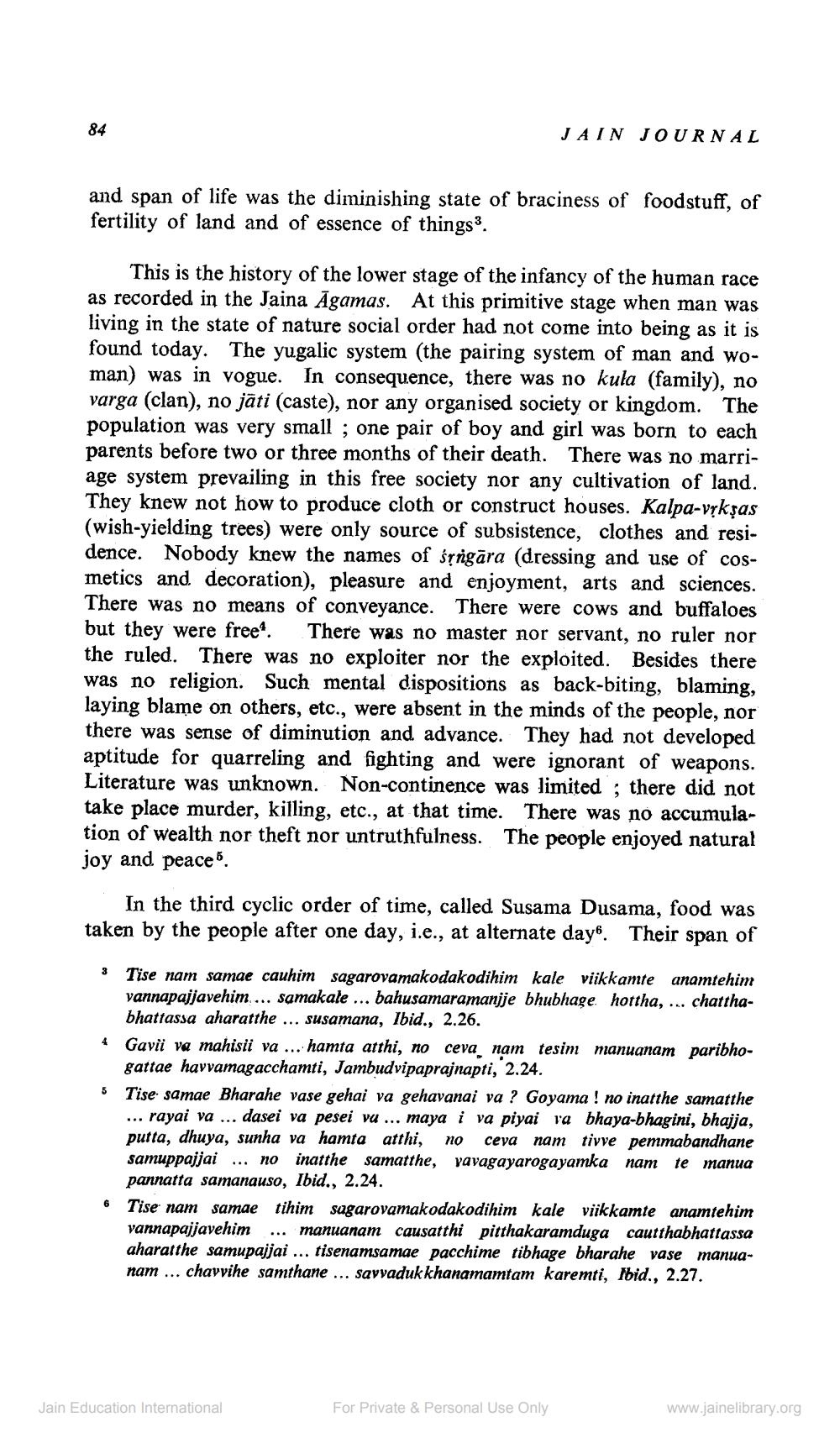________________
84
JAIN JOURNAL
and span of life was the diminishing state of braciness of foodstuff, of fertility of land and of essence of things.
This is the history of the lower stage of the infancy of the human race as recorded in the Jaina Āgamas. At this primitive stage when man was living in the state of nature social order had not come into being as it is found today. The yugalic system (the pairing system of man and woman) was in vogue. In consequence, there was no kula (family), no varga (clan), no jāti (caste), nor any organised society or kingdom. The population was very small ; one pair of boy and girl was born to each parents before two or three months of their death. There was no marriage system prevailing in this free society nor any cultivation of land. They knew not how to produce cloth or construct houses. Kalpa-vşkşas (wish-yielding trees) were only source of subsistence, clothes and residence. Nobody knew the names of śrrgāra (dressing and use of cosmetics and decoration), pleasure and enjoyment, arts and sciences. There was no means of conveyance. There were cows and buffaloes but they were free". There was no master nor servant, no ruler nor the ruled. There was no exploiter nor the exploited. Besides there was no religion. Such mental dispositions as back-biting, blaming, laying blame on others, etc., were absent in the minds of the people, nor there was sense of diminution and advance. They had not developed aptitude for quarreling and fighting and were ignorant of weapons. Literature was unknown. Non-continence was limited ; there did not take place murder, killing, etc., at that time. There was no accumulation of wealth nor theft nor untruthfulness. The people enjoyed natural joy and peace.
In the third cyclic order of time, called Susama Dusama, food was ken by the people after one day, i.e., at alternate day. Their span of
3
Tise nam samae cauhim sagarovamakodakodihim kale viikkamte anamtehim vannapajjavehim.... samakale ... bahusamaramanjje bhubhage hottha, ... chatthabhattassa aharatthe ... susamana, Ibid., 2.26. Gavii va mahisii va ... hamta atthi, no ceva, nam tesim manuanam paribhogattae havvamagacchamti, Jambudvipaprajnapti, 2.24. Tise samae Bharahe vase gehai va gehayanai va ? Goyama ! no inatthe samatthe ... rayai va ... dasei va pesei vu ... maya i va piyai va bhaya-bhagini, bhajja, putta, dhuya, sunha va hamta atthi, no ceva nam tivve pemmabandhane samuppajjai ... no inatthe samatthe, vavagayarogayamka nam te manua pannatta samanauso, Ibid., 2.24. Tise nam samae tihim sagarovamakodakodihim kale viikkamte anamtehim vannapajjavehim ... manuanam causatthi pitthakaramduga cautthabhattassa aharatthe samupajjai ... tisenamsamae pacchime tibhage bharahe vase manuanam ... chavvihe samthane ... savvadukkhanamamtam karemti, Ibid., 2.27.
Jain Education International
For Private & Personal Use Only
www.jainelibrary.org




